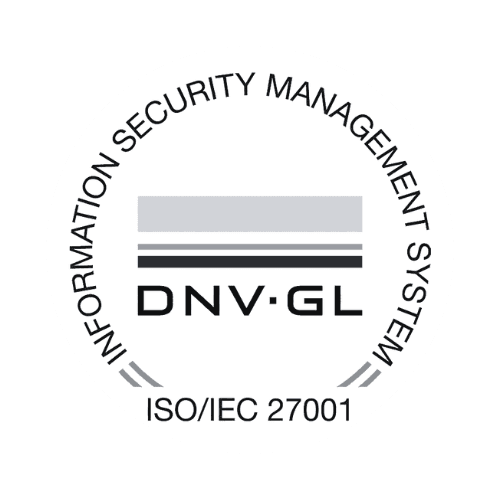Sé el primero en saberlo
Written by AI
How Industry-Specific SaaS Solutions are Revolutionizing the Grocery Trade
In today’s digital age, companies face the challenge of adapting to rapidly changing market conditions and finding new ways to optimize their business processes. This is particularly critical in the grocery trade, which has a high level of competitive intensity, making it essential to find innovative solutions to be successful. One such solution that has gained significant importance in recent years is industry-specific Software-as-a-Service (SaaS).
Understanding SaaS and its Importance in the Grocery Trade
Definition and Function of SaaS
Before we delve into the significance of SaaS in the grocery trade, it is essential to understand what SaaS actually is. SaaS refers to a type of cloud-based software solution where software applications are delivered over the Internet and subscribed to by users. Unlike conventional software that has to be installed locally on computer systems, SaaS solutions can be used from anywhere and on various devices.
The function of SaaS is to provide companies access to specialized applications that support their business processes. These applications are developed, maintained, and updated by a provider, while companies only pay for the use of the software, without needing to worry about infrastructure.
The Role of SaaS in Modern Grocery Trade
For the grocery trade, SaaS plays a crucial role in meeting increasing customer demands while simultaneously improving operational efficiency. By employing SaaS solutions, companies can optimize their operations by using specific software applications tailored to the needs of the grocery trade.
The range of applications includes solutions for inventory management and supply chain optimization to point-of-sale systems and customer relationship management. These industry-specific SaaS solutions enable grocery retailers to automate their processes, enhance customer service, and make better decisions based on real-time data.
An example of a SaaS solution in the grocery trade is inventory management software that allows retailers to keep track of their stock levels. With this software, they can monitor inventory in real-time, trigger orders automatically, and ensure that sufficient products are always in stock to meet customer demand. This not only contributes to customer satisfaction but also reduces overstock and associated costs.
Another example is a cloud-based point-of-sale software that enables grocery retailers to process transactions quickly and efficiently. With this software, retailers can accept payments, manage discounts and coupons, and generate sales reports. By automating these processes, retailers save time and can focus on other important tasks, such as improving customer service and developing marketing strategies.
The Benefits of Industry-Specific SaaS Solutions
Efficiency Gains through Tailored Software
A significant advantage of industry-specific SaaS solutions in the grocery trade is the ability to tailor the software precisely to specific business requirements. Unlike standard solutions, industry-specific SaaS applications provide functions and modules specifically designed for the needs of the grocery trade.
This facilitates task automation, improves the accuracy and efficiency of processes, and enables companies to save time and resources. Especially in a highly competitive market environment, an efficient software solution can make the difference between success and failure.
An example of a tailored feature in an industry-specific SaaS solution for the grocery trade is automated inventory management. This feature allows retailers to monitor stock levels in real-time and automatically place orders for products that are running low. This helps prevent products from being out of stock and disappointing customers. At the same time, it avoids holding unnecessarily high inventory levels, leading to cost savings.
Cost Savings through SaaS Solutions
Another advantage of SaaS solutions is that they can help companies reduce costs. Instead of having to invest in expensive hardware and infrastructure, companies can use SaaS solutions for a monthly or annual fee. This eliminates high initial investments and ongoing maintenance costs.
Moreover, companies do not have to worry about software upgrades and security updates, as these are managed by the SaaS providers. This allows grocery retailers to allocate their financial resources to other strategic initiatives and strengthen their competitive position.
An example of a cost saving through the use of SaaS solutions in the grocery trade is the reduction of IT personnel costs. Since the SaaS providers take on the responsibility for maintaining and operating the software, companies do not need to hire or train their own IT experts. This leads to significant savings in personnel costs and enables companies to use their budgets for other important areas, such as marketing or product development.
The Challenges of Implementing SaaS in the Grocery Trade
Technical Hurdles and Solutions
Despite the numerous advantages of SaaS solutions, there are also challenges in the grocery trade related to implementation. One such challenge is technical hurdles, particularly when it comes to integrating existing systems and infrastructures with SaaS applications.
To tackle this challenge, it is crucial for companies to develop careful planning and project management strategies to ensure a smooth implementation. Companies should also work closely with SaaS providers to ensure that the solutions are optimally adapted to the existing IT infrastructure.
When integrating SaaS solutions, various technical aspects need to be considered. These include the compatibility of SaaS applications with existing systems, data migration from old systems to the cloud, and ensuring seamless communication between different applications. One way to overcome these hurdles is by utilizing APIs (Application Programming Interfaces) to facilitate smooth integration.
Data Protection and Security Concerns
Another issue that must be considered when implementing SaaS in the grocery trade is data protection and security concerns. Since data is stored in the cloud, companies must ensure that adequate security measures are taken to protect against unauthorized access or data loss.
To address these challenges, companies should only work with trusted SaaS providers that implement strict security measures. Additionally, it is essential to establish appropriate data protection agreements and implement internal security policies to ensure data integrity and the protection of sensitive customer data.
Another important aspect is compliance with legal data protection regulations. In the grocery trade, companies must ensure that they comply with applicable data protection laws and regulations to avoid fines and legal consequences. This includes compliance with the European Union's General Data Protection Regulation (GDPR), which governs the protection of personal data.
To ensure data security, companies can also utilize encryption technologies to maintain the confidentiality of data during transmission and storage. Furthermore, regular security audits and penetration tests should be conducted to identify and address potential vulnerabilities.
Future Prospects for SaaS in the Grocery Trade
Potential for Further Growth
Given the increasing digitization of the grocery trade, there is enormous potential for further growth of SaaS solutions. The grocery trade is becoming increasingly complex, and companies will continue to seek ways to optimize their operations and gain competitive advantages.
With industry-specific SaaS solutions, companies can implement solutions tailored to the needs and challenges of the grocery trade, enabling efficient and data-driven operations. Therefore, it is likely that the adoption of SaaS in the grocery trade will continue to rise in the coming years.
The Role of SaaS in the Digital Transformation of the Grocery Trade
Ultimately, SaaS plays a central role in the digital transformation of the grocery trade. With increasing competition and changing consumer expectations, it is essential for companies to adopt innovative technologies to enhance their competitiveness.
SaaS solutions provide grocery retailers with the opportunity to leverage the benefits of cloud technology to optimize their processes, increase efficiency, and ensure seamless integration with other digital systems. This enables companies to tackle the challenges of the digital age and fully realize their business potential.
Overall, industry-specific SaaS solutions have the potential to revolutionize the grocery trade by enabling more efficient processes, reducing costs, and assisting companies in adapting to changing market demands. By leveraging the advantages of cloud technology, companies can succeed in their niche and differentiate themselves from the competition. The future of the grocery trade undoubtedly lies in the combination of innovation and SaaS.
Another important aspect of SaaS solutions in the grocery trade is improving customer experience. By utilizing SaaS, grocery retailers can provide personalized offers and recommendations based on individual preferences and purchasing behavior. This enables companies to build closer customer relationships and enhance customer satisfaction.
Furthermore, SaaS solutions in the grocery trade can also contribute to promoting sustainability. By employing digital solutions, companies can reduce their resource consumption, minimize waste, and implement more environmentally friendly practices. This is particularly important in light of growing concerns about climate change and the need to develop more sustainable business models.








